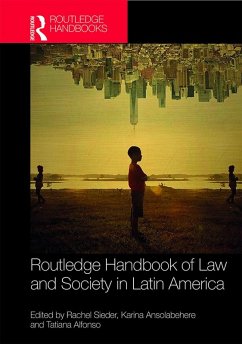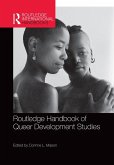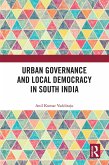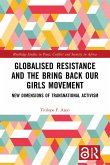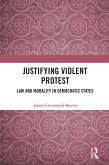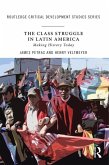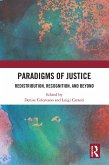Routledge Handbook of Law and Society in Latin America (eBook, ePUB)
Redaktion: Sieder, Rachel; Alfonso, Tatiana; Ansolabehere, Karina
47,95 €
47,95 €
inkl. MwSt.
Sofort per Download lieferbar

24 °P sammeln
47,95 €
Als Download kaufen

47,95 €
inkl. MwSt.
Sofort per Download lieferbar

24 °P sammeln
Jetzt verschenken
Alle Infos zum eBook verschenken
47,95 €
inkl. MwSt.
Sofort per Download lieferbar
Alle Infos zum eBook verschenken

24 °P sammeln
Routledge Handbook of Law and Society in Latin America (eBook, ePUB)
Redaktion: Sieder, Rachel; Alfonso, Tatiana; Ansolabehere, Karina
- Format: ePub
- Merkliste
- Auf die Merkliste
- Bewerten Bewerten
- Teilen
- Produkt teilen
- Produkterinnerung
- Produkterinnerung

Bitte loggen Sie sich zunächst in Ihr Kundenkonto ein oder registrieren Sie sich bei
bücher.de, um das eBook-Abo tolino select nutzen zu können.
Hier können Sie sich einloggen
Hier können Sie sich einloggen
Sie sind bereits eingeloggt. Klicken Sie auf 2. tolino select Abo, um fortzufahren.

Bitte loggen Sie sich zunächst in Ihr Kundenkonto ein oder registrieren Sie sich bei bücher.de, um das eBook-Abo tolino select nutzen zu können.
Leading figures in the study of law and society from different regions of the world present new original research, and a cutting-edge analysis of the central theoretical and applied areas of enquiry in socio-legal studies in Latin America.
- Geräte: eReader
- mit Kopierschutz
- eBook Hilfe
Andere Kunden interessierten sich auch für
![Routledge Handbook of Law and Society in Latin America (eBook, PDF) Routledge Handbook of Law and Society in Latin America (eBook, PDF)]() Routledge Handbook of Law and Society in Latin America (eBook, PDF)47,95 €
Routledge Handbook of Law and Society in Latin America (eBook, PDF)47,95 €![Routledge Handbook of Queer Development Studies (eBook, ePUB) Routledge Handbook of Queer Development Studies (eBook, ePUB)]() Routledge Handbook of Queer Development Studies (eBook, ePUB)46,95 €
Routledge Handbook of Queer Development Studies (eBook, ePUB)46,95 €![Urban Governance and Local Democracy in South India (eBook, ePUB) Urban Governance and Local Democracy in South India (eBook, ePUB)]() Anil Kumar VaddirajuUrban Governance and Local Democracy in South India (eBook, ePUB)42,95 €
Anil Kumar VaddirajuUrban Governance and Local Democracy in South India (eBook, ePUB)42,95 €![Globalised Resistance and the Bring Back Our Girls Movement (eBook, ePUB) Globalised Resistance and the Bring Back Our Girls Movement (eBook, ePUB)]() Titilope F. AjayiGlobalised Resistance and the Bring Back Our Girls Movement (eBook, ePUB)42,95 €
Titilope F. AjayiGlobalised Resistance and the Bring Back Our Girls Movement (eBook, ePUB)42,95 €![Justifying Violent Protest (eBook, ePUB) Justifying Violent Protest (eBook, ePUB)]() James Greenwood-ReevesJustifying Violent Protest (eBook, ePUB)42,95 €
James Greenwood-ReevesJustifying Violent Protest (eBook, ePUB)42,95 €![The Class Struggle in Latin America (eBook, ePUB) The Class Struggle in Latin America (eBook, ePUB)]() James PetrasThe Class Struggle in Latin America (eBook, ePUB)46,95 €
James PetrasThe Class Struggle in Latin America (eBook, ePUB)46,95 €![Paradigms of Justice (eBook, ePUB) Paradigms of Justice (eBook, ePUB)]() Paradigms of Justice (eBook, ePUB)46,95 €
Paradigms of Justice (eBook, ePUB)46,95 €-
-
-
Leading figures in the study of law and society from different regions of the world present new original research, and a cutting-edge analysis of the central theoretical and applied areas of enquiry in socio-legal studies in Latin America.
Dieser Download kann aus rechtlichen Gründen nur mit Rechnungsadresse in A, B, BG, CY, CZ, D, DK, EW, E, FIN, F, GR, HR, H, IRL, I, LT, L, LR, M, NL, PL, P, R, S, SLO, SK ausgeliefert werden.
Produktdetails
- Produktdetails
- Verlag: Taylor & Francis eBooks
- Seitenzahl: 494
- Erscheinungstermin: 20. Mai 2019
- Englisch
- ISBN-13: 9781317291275
- Artikelnr.: 56861843
- Verlag: Taylor & Francis eBooks
- Seitenzahl: 494
- Erscheinungstermin: 20. Mai 2019
- Englisch
- ISBN-13: 9781317291275
- Artikelnr.: 56861843
- Herstellerkennzeichnung Die Herstellerinformationen sind derzeit nicht verfügbar.
Rachel Sieder is senior research professor at the Center for Research and Graduate Studies in Social Anthropology (CIESAS) in Mexico City. She is also associate senior researcher at the Chr. Michelsen Institute in Bergen, Norway. Her research interests include human rights, indigenous rights, social movements, indigenous law, legal anthropology, the state and violence. Her books include: ed. Demanding Justice and Security: Indigenous Women and Legal Pluralities in Latin America. (2017); ed. with John-Andrew McNeish, Gender Justice and Legal Pluralities: Latin American and African Perspectives, Routledge-Cavendish (2012); ed. with Javier Couso and Alexandra Huneeus, Cultures of Legality: Judicialization and Political Activism in Latin America, (2010). She has an M.A. in Latin American Studies and a Ph.D. in Politics from the University of London. Karina Ansolabehere is a full-time researcher at the Institute of Legal Research of the National Autonomous University of Mexico, and part time researcher at FLACSO-Mexico. She is a sociologist from the University of Buenos Aires, has a Masters in Economic Sociology from the University of General San Martin, and a Ph.D. in Research in Social Sciences with specialization in Political Sciences from FLACSO-Mexico. Her topics of interest are judicial politics, human rights, judicialization of human rights, legal cultures and political theory, with special focus on Latin America. She has taught courses on sociology of law, judicial politics, human rights and political theory. She is a member of the National Researchers System of Mexico. Ansalobehere has a degree in sociology from the University of Buenos Aires, Argentina, and a Ph.D. in Social Sciences with specialization in Political Sciences from FLACSO-Mexico. Tatiana Alfonso is an assistant professor at Autonomous Technological Institute of Mexico (ITAM) Law School in Mexico City since 2017. Her research interests include human rights, sociology of law, sociology of race and ethnicity, sociology of development and methodologies for legal research. In her work, she explores the relation between law and social inequalities with a focus on how legal and political institutions may have distributive effects between unequal actors in society. In pursuing those interests, she has carried out research on racial discrimination and human rights, social movements and legal change, and property rights of indigenous peoples and Afrodescendant communities in Latin America. She is a psychologist and a lawyer from Universidad de Los Andes (Bogotá, Colombia) and holds a Masters and a PhD in Sociology from the University of Wisconsin-Madison.
1. Law and Society in Latin America: An Introduction Part 1: Law, Politics
and Society 2. Latin America's contribution to Constitutionalism 3. State
and Law in Latin America: A Critical Assessment 4. Legal Pluralism and
Fragmented Sovereignties: Legality and Illegality in Latin America 5.
Disobeying the Law: Latin America's Culture of Noncompliance with Rules 6.
Law and Violence in Latin America 7. Ethnography, Bureaucracy and Legal
Knowledge in Latin American State Institutions: Law's Material and
Technical Dimensions 8. Latin American Feminist Legal theory: Taking
Multiple Subordinations Seriously 9. Law and Race in Latin America 10. An
Agenda for Latin American "Law and Development" 11. Marxist Perspectives on
Law and Inequality in Latin America Part 2: New Constitutional Models and
Institutional Design 12. Judicial Politics in Latin America 13. Supreme and
Constitutional Courts: Directions in Constitutional Justice 14. Public
Prosecutors Offices in Latin America 15. Human Rights Ombudsmen in Latin
America 16. Prisoner Capture: Welfare, Lawfare and Warfare in Latin
America's Overcrowded Prisons 17. Challenges of Police Reform in Latin
America 18. Legal Professionals in Latin America at the Dawn of the 21st
Century 19. Legal Institutions as Arenas for Promoting Human Rights 20.
Deglobalization and Regional Human Rights Part 3: Law and Social Movements
21. The Judicialization of Politics in Latin America 22. Society, the
State, and Recognition of the Right to a Self-Perceived Gender Identity 23.
Law, Gender and Social Movements in Latin America: Moral Negotiations and
Uneven Victories in Feminist Legal Mobilization 24. Transitional Justice
and the Politics of Prosecuting Gross Human Rights Violations in Latin
America Part 4: Emergent Topics 25. Urban Regulation and the Latin American
City 26. Landscapes of Property: Socio-Legal Perspectives from Latin
America 27. New Influences on Legality and Justice in Latin America:
Corruption and Organized Crime 28. The 'New Militarism" and the Rule of Law
in Latin American Democracies 29. Drugs and the Law in Latin America: The
Legal, Institutional and Social Costs of Drug Policy
and Society 2. Latin America's contribution to Constitutionalism 3. State
and Law in Latin America: A Critical Assessment 4. Legal Pluralism and
Fragmented Sovereignties: Legality and Illegality in Latin America 5.
Disobeying the Law: Latin America's Culture of Noncompliance with Rules 6.
Law and Violence in Latin America 7. Ethnography, Bureaucracy and Legal
Knowledge in Latin American State Institutions: Law's Material and
Technical Dimensions 8. Latin American Feminist Legal theory: Taking
Multiple Subordinations Seriously 9. Law and Race in Latin America 10. An
Agenda for Latin American "Law and Development" 11. Marxist Perspectives on
Law and Inequality in Latin America Part 2: New Constitutional Models and
Institutional Design 12. Judicial Politics in Latin America 13. Supreme and
Constitutional Courts: Directions in Constitutional Justice 14. Public
Prosecutors Offices in Latin America 15. Human Rights Ombudsmen in Latin
America 16. Prisoner Capture: Welfare, Lawfare and Warfare in Latin
America's Overcrowded Prisons 17. Challenges of Police Reform in Latin
America 18. Legal Professionals in Latin America at the Dawn of the 21st
Century 19. Legal Institutions as Arenas for Promoting Human Rights 20.
Deglobalization and Regional Human Rights Part 3: Law and Social Movements
21. The Judicialization of Politics in Latin America 22. Society, the
State, and Recognition of the Right to a Self-Perceived Gender Identity 23.
Law, Gender and Social Movements in Latin America: Moral Negotiations and
Uneven Victories in Feminist Legal Mobilization 24. Transitional Justice
and the Politics of Prosecuting Gross Human Rights Violations in Latin
America Part 4: Emergent Topics 25. Urban Regulation and the Latin American
City 26. Landscapes of Property: Socio-Legal Perspectives from Latin
America 27. New Influences on Legality and Justice in Latin America:
Corruption and Organized Crime 28. The 'New Militarism" and the Rule of Law
in Latin American Democracies 29. Drugs and the Law in Latin America: The
Legal, Institutional and Social Costs of Drug Policy
1. Law and Society in Latin America: An Introduction Part 1: Law, Politics
and Society 2. Latin America's contribution to Constitutionalism 3. State
and Law in Latin America: A Critical Assessment 4. Legal Pluralism and
Fragmented Sovereignties: Legality and Illegality in Latin America 5.
Disobeying the Law: Latin America's Culture of Noncompliance with Rules 6.
Law and Violence in Latin America 7. Ethnography, Bureaucracy and Legal
Knowledge in Latin American State Institutions: Law's Material and
Technical Dimensions 8. Latin American Feminist Legal theory: Taking
Multiple Subordinations Seriously 9. Law and Race in Latin America 10. An
Agenda for Latin American "Law and Development" 11. Marxist Perspectives on
Law and Inequality in Latin America Part 2: New Constitutional Models and
Institutional Design 12. Judicial Politics in Latin America 13. Supreme and
Constitutional Courts: Directions in Constitutional Justice 14. Public
Prosecutors Offices in Latin America 15. Human Rights Ombudsmen in Latin
America 16. Prisoner Capture: Welfare, Lawfare and Warfare in Latin
America's Overcrowded Prisons 17. Challenges of Police Reform in Latin
America 18. Legal Professionals in Latin America at the Dawn of the 21st
Century 19. Legal Institutions as Arenas for Promoting Human Rights 20.
Deglobalization and Regional Human Rights Part 3: Law and Social Movements
21. The Judicialization of Politics in Latin America 22. Society, the
State, and Recognition of the Right to a Self-Perceived Gender Identity 23.
Law, Gender and Social Movements in Latin America: Moral Negotiations and
Uneven Victories in Feminist Legal Mobilization 24. Transitional Justice
and the Politics of Prosecuting Gross Human Rights Violations in Latin
America Part 4: Emergent Topics 25. Urban Regulation and the Latin American
City 26. Landscapes of Property: Socio-Legal Perspectives from Latin
America 27. New Influences on Legality and Justice in Latin America:
Corruption and Organized Crime 28. The 'New Militarism" and the Rule of Law
in Latin American Democracies 29. Drugs and the Law in Latin America: The
Legal, Institutional and Social Costs of Drug Policy
and Society 2. Latin America's contribution to Constitutionalism 3. State
and Law in Latin America: A Critical Assessment 4. Legal Pluralism and
Fragmented Sovereignties: Legality and Illegality in Latin America 5.
Disobeying the Law: Latin America's Culture of Noncompliance with Rules 6.
Law and Violence in Latin America 7. Ethnography, Bureaucracy and Legal
Knowledge in Latin American State Institutions: Law's Material and
Technical Dimensions 8. Latin American Feminist Legal theory: Taking
Multiple Subordinations Seriously 9. Law and Race in Latin America 10. An
Agenda for Latin American "Law and Development" 11. Marxist Perspectives on
Law and Inequality in Latin America Part 2: New Constitutional Models and
Institutional Design 12. Judicial Politics in Latin America 13. Supreme and
Constitutional Courts: Directions in Constitutional Justice 14. Public
Prosecutors Offices in Latin America 15. Human Rights Ombudsmen in Latin
America 16. Prisoner Capture: Welfare, Lawfare and Warfare in Latin
America's Overcrowded Prisons 17. Challenges of Police Reform in Latin
America 18. Legal Professionals in Latin America at the Dawn of the 21st
Century 19. Legal Institutions as Arenas for Promoting Human Rights 20.
Deglobalization and Regional Human Rights Part 3: Law and Social Movements
21. The Judicialization of Politics in Latin America 22. Society, the
State, and Recognition of the Right to a Self-Perceived Gender Identity 23.
Law, Gender and Social Movements in Latin America: Moral Negotiations and
Uneven Victories in Feminist Legal Mobilization 24. Transitional Justice
and the Politics of Prosecuting Gross Human Rights Violations in Latin
America Part 4: Emergent Topics 25. Urban Regulation and the Latin American
City 26. Landscapes of Property: Socio-Legal Perspectives from Latin
America 27. New Influences on Legality and Justice in Latin America:
Corruption and Organized Crime 28. The 'New Militarism" and the Rule of Law
in Latin American Democracies 29. Drugs and the Law in Latin America: The
Legal, Institutional and Social Costs of Drug Policy
